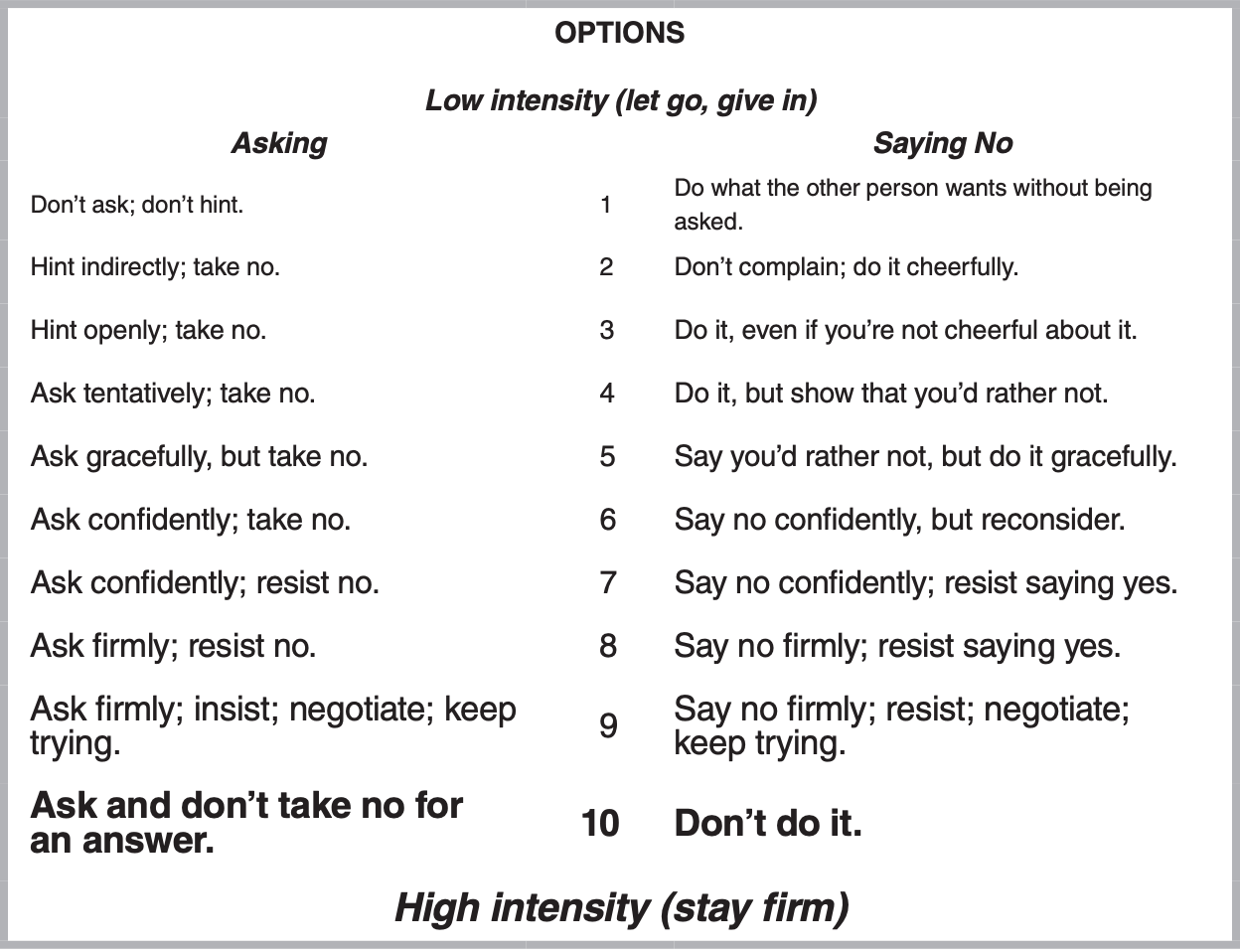Asking for what you want is an underappreciated art form. Done well, it creates joy, builds connection, and moves your life forward. Done poorly (or not at all), it flares anger, burns bridges, and extinguishes dreams.
In theory, asking for what you want is easy. But I spent a solid year in rocky 1:1s with the CEO at Slack, and not once did I ask how to earn the trust and goodwill I so desperately wanted. So what gets in the way? Draaaaammma! Karpman’s drama triangle describes three roles we often fall into that create an endless cycle of drama and prevent us from getting what we want:
The Hero: Finding temporary solutions instead of addressing the root of the issue.
The Villain: Blaming ourselves or others instead of taking responsibility for making change happen.
The Victim: Feeling powerless instead of recognizing our own agency and desires.
All of these fundamentally boil down to victimhood. A sense that there’s nothing we can do, so why even bother asking? Talk about a self-fulfilling prophecy! Like so many great life lessons, it’s a cliche, but a powerful one: To get what you want in life you have to ask. Of course we all feel sorry for ourselves from time to time. But don’t let those feelings stop you from asking for what you want.
Fortunately there are excellent frameworks to learn how make an effective request: I recommend Non-Violent Communication and DBT’s Dear Man Give Fast framework. They both boil down into approximately the same template for requests:
When [OBSERVABLE ACTION], I feel [FEELINGS] and think [THOUGHTS]. Will you please [REQUEST]? Here’s how it will benefit both of us: [BENEFIT].
Done well, the focus is on “I” statements: you come off as humble, earnest, and vulnerable. Done poorly, the focus is on “you” statements: you come off as angry, bitter, and accusatory. Choose wisely! The “you” statements you do use should be as objective and factual as possible:
“Will you please stop being such a dick in meetings?” is subjective and inflammatory. It might feel good to say, but will it get you what you want?
“Will you please stop interrupting me in meetings?” is less subjective, less inflammatory, and lets you hold them accountable to their success or failure.
Spend your time resolving the conflict—not arguing over its facts.
Now for the bad news: even the most artfully constructed request doesn’t guarantee a “yes.” The good news: making your ask public matters far more than the response. When you’re in the closet, you’re living with the anguish of hiding what you want and feeling trapped. When you’re out, you’re free to be yourself! The joy of that freedom makes it far easier to accept a “no” gracefully—instead of seeing it as a defeat.
But what if you really want that “yes?” Well, it’s time to change the intensity of your ask. Most of us use a relatively narrow range of intensity when we ask for what we want (or say no to what we don’t want). DBT offers an instructive scale for expanding our range:
What part of this range aren’t you using? Ultimately everyone has the right to say NO, so pick the intensity level that gives you the best chance of being heard—it might be higher or lower. ALSO, NOTE THAT HIGH INTENSITY DOESN’T MEAN SHOUTING! Shouting is like honking a car horn: useful for the occasional real danger, but mostly annoying and ineffective. High intensities can feel inaccessible sometimes, especially if you’re not a straight white man. Instead of turning up the volume, you can turn up the intensity in other ways:
Persistence: Keep asking until you get the answer you want (or a very firm no).
Accountability: “Will you promise to get me that by Friday at 5pm?” The promise makes it a matter of integrity if they fail to keep it.
Negotiation: “I need this 100%, I can’t budge on it. Where else can I give to get you to a yes?”
Tone: Great words aren’t enough to make a great ask. What energy are you bringing to the ask? What side of yourself can you embody to bring the energy you need?
Remember, asking skillfully speaks far louder than shouting.
Don’t be a victim
Ask skillfully using the request template
Expand the intensity range of your asks
Got questions on how to handle your own situation? Feel free to comment below or get in touch, happy to help. Subscribe now to get future letters right in your inbox.




